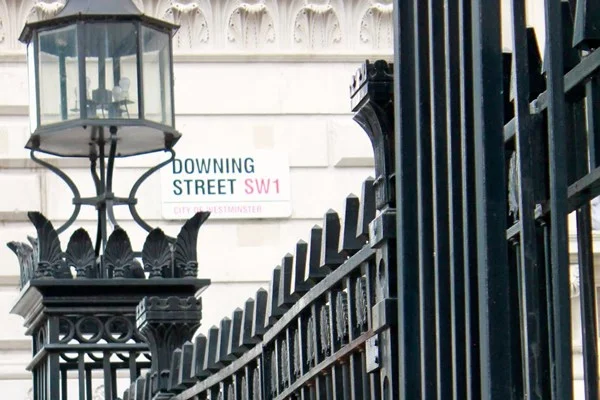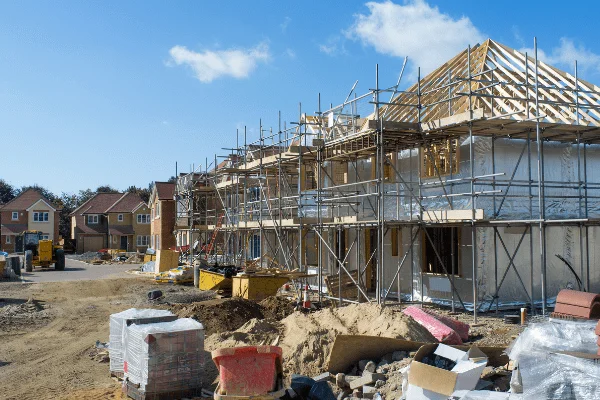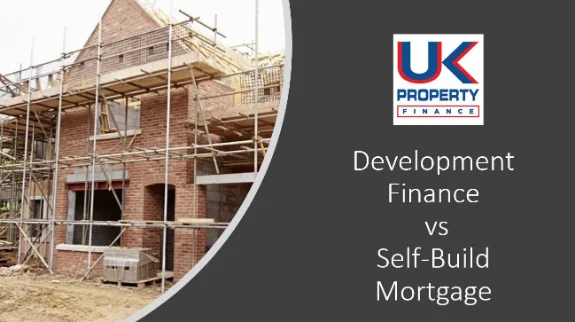The Benefits of Private Lending as Development Finance
As economic uncertainty continues to escalate, the UK’s biggest banks are becoming increasingly inflexible. Strict lending regulations coupled with complex in-house policies are making it more difficult than ever to qualify for specialist funding on the High Street.
Property developers and real estate investors in particular are feeling the pinch. Potentially lucrative projects are being left in limbo, or in some instances, failing to even get off the ground in the first place.
But this lack of flexibility and product availability on the High Street need not spell doom and gloom for investors and developers. It simply calls for a search for affordable funding beyond the High Street, which is where private lending comes into play.
A rapidly evolving segment
Demand for the kinds of flexible financial services that simply do not exist on the high street is being met by a rapidly expanding specialist lending sector. Across the UK, dozens of private lenders have gone into business to effectively (and in some cases literally) ‘bridge’ the gaps in the services provided by mainstream banks.
From bridging loans to auction finance to specialist development finance, it’s all available from an extensive network of private lenders.
What makes this specialised lending sector unique is how all applications for funding are assessed individually. None of the usual ‘binary’ application criteria apply; all requests are considered based on their broader merit.
This means that rather than being offered a limited range of off-the-shelf products, loans and development finance facilities are built from scratch to meet the exact requirements of the client. As a result, they get exactly what they need at a price they can afford, with terms and conditions that suit both the borrower and the lender.
The advantages of private lending
Seeking support from a specialist lender (as opposed to a mainstream bank) can be beneficial in the following ways:
- Flexibility: All aspects of the facility can be tailored to meet the unique requirements of the applicant. This includes LTVs as high as 90% or more, a wide variety of repayment options (loan terms) to choose from, and the option to ‘roll up’ interest into the final repayment.
- Accessibility: None of the normal restrictions apply when seeking financial support from a specialist lender. Even with poor credit, a history of insolvency, and/or no formal proof of income, it is still possible to qualify for flexible and affordable products like bridging loans.
- Speed: With all required paperwork and documentation in place, bridging loans and development finance loans can be arranged within a few working days. On the High Street, the closest comparable products could take weeks (if not months) to underwrite.
- Affordability: Interest rates and overall borrowing costs are always open to negotiation with specialist lenders. Some short-term facilities can be taken out for as little as 0.5% per month, with no initial arrangement fees, admin fees, or deposit payments required.
- Freedom: Importantly, specialist lenders place few (if any) restrictions on how their products can be used. While traditional banks limit their loans and mortgages to very specific purposes, similar products from specialist lenders can be used for any legal purpose.
It is also possible to request a decision in principle on a bridging finance or development finance application without posing a risk to your credit score.
Far from a last resort, more businesses (and mainstream borrowers) than ever before are setting their sights on the UK’s growing specialist lending sector. With the support and representation of a skilled broker, a product search that goes beyond the High Street can pave the way for significant savings.
Not to mention, it is a far faster, easier, and less stressful experience than applying for funding via conventional channels.
For more information on any of the above or to discuss property development finance in more detail, contact a member of the team at UK Property Finance today.
What Investors Need to Know About Development Finance in 2022
Development finance is an ideal solution for developers and property investors looking to fund the construction or refurbishment of their properties using short-term funding solutions. When looking at funding for your development project, it is imperative that you familiarise yourself with all the options available so that you can make an informed decision.
What is development finance?
Development finance is a short-term loan for property development that is exclusively used for the construction or refurbishment of a property or property. It provides funds for investors and developers to manage project purchases and build costs.
Whether you are considering a residential, commercial, or mixed-use project, development finance could be a funding option available to you, including ground-up new builds, knock-down and rebuild projects, conversions, and refurbishments.
Development loans are typically arranged very quickly as opposed to other long-term funding products, such as mortgages, which can take considerably longer to be approved.
Most lenders will offer a loan period of 6 to 24 months; however, some, but not all, may extend this should you need to.
Although similar to bridging finance, development finance can provide both an upfront loan towards the site acquisition as well as further funding released at different stages throughout the project.
The Advantages and Disadvantages of Development Finance
Development finance offers unique benefits to property developers that other loan products can’t; however, it is vital that you take into consideration both the advantages and disadvantages before starting your development project.
Advantages
- Quick to arrange
Development finance can be made available quicker than applying for a traditional mortgage. Funds can be arranged in a short space of time, typically between 1 and 4 weeks, which allows the development project to get underway while alternative funding is arranged.
- Short-term loan
Development finance loans are available for a short period of time, usually between 6 and 24 months. The transient nature of this type of finance reduces the risk of being burdened by debt for an extended period or facing high early repayment penalties should you wish to repay early.
- Roll-up interest
Development finance offers developers the opportunity to repay all the capital and interest in a single payment at the end of the term. The interest ‘rolls up’, eliminating the need for regular monthly payments.
- Competitive interest rates
If you are an experienced developer, you may be able to secure a development loan at a lower interest rate than inexperienced developers. Loans can be secured at a lower interest rate for larger projects and can be further lowered if you borrow a lower proportion of the gross development value (GDV).
Considering all these factors, we have a realistic range of 16% per annum as the upper limit for the interest rate on a development finance project that can go as low as 5% per annum for experienced developers borrowing a large amount at a low proportion of the GDV.
- Take on large projects.
Development finance paves the way for developers to take on ambitious projects with higher complexity and enables them to work on multiple development projects simultaneously. Traditional financing options can restrict developers from experimenting with more complex projects, whereas development finance offers the flexibility to work on projects of varying size and complexity.
- Available for a wide range of projects
Development finance is ideal for new-build, residential, commercial, and semi-commercial property development projects. It is especially beneficial for properties that require remedial work prior to being funded using traditional forms of financing. Developers can borrow loans even for derelict properties that would be impossible to get a mortgage for. The short-term financing option allows developers to refurbish any property and sell it at a profit.
- Limited capital outlay
Development finance doesn’t require any upfront payments other than your deposit. Instead, your cash on hand can be used for other expenses or simply to improve your cash flow position.
Disadvantages
- Eligibility criteria
Most lenders have strict eligibility criteria when approving development finance, particularly when the borrower is a first-time property developer. Developers with extensive portfolios will find it significantly easier to be approved for this type of finance.
- Planning permissions
Many lenders will require you to have all planning permissions needed for the development in place before considering any application for development finance. Issues with planning may cause considerable additional costs and problems down the line, and therefore the lender will want to see evidence that planning has been approved prior to approval.
- Paperwork
As the application process for development finance can be complex, it is imperative that you have all your paperwork in order before you apply. Lenders will expect to see an extensive plan detailing all aspects of the development, including planning permission, designs, drawings, and most importantly, costings.
- Additional fees
It is important to take into account any additional fees when costing your development project. These include arrangement fees, valuation fees, and legal fees, which can usually be added to the loan amount and therefore will not need to be paid upfront. There is also likely to be an exit fee at the end of the loan period when full repayment is made.
- Development finance for limited companies
For limited companies applying for development finance, most lenders will require some form of personal guarantee from the company’s directors to minimise the risk to themselves. It is worth noting that individuals applying will be personally liable for the entirety of the loan.
Who uses development finance?
As the name suggests, development finance is primarily used by property developers and investors for ground-up and extensive renovation projects. Funding can be used for land purchases and for the entire building cost. It is not unusual for a lender to fund, for example, 50% of the land purchase and 70% of the building costs, meaning that the developer will have fewer upfront costs, which in turn positively affects their cash flow, which can be used in other areas.
Is development finance right for me?
Once you have conducted your due diligence, it is time to make a final decision. So, how do you determine whether development finance suits you and your business needs? Answering a few simple questions can help you gain a better understanding:
Evaluating your business needs is the first step to determining if development finance is ideal for you.
- Analyse whether your business needs a short-term cash inflow or long-term financial aid.
- Assess your current financial situation to determine your ability to repay the loan on time without disturbing your finances.
- Lastly, gauge if you can provide the necessary paperwork to qualify for and access the development loan.
If you can answer these questions comfortably, development finance might be what you need to fund your project. An experienced development finance broker can help developers access the most comprehensive list of development finance lenders at the lowest market rates.
Summary
Individuals, builders, and businesses looking for quick, short-term funding can benefit from development finance to fund their development projects. It provides access to the funds developers need to develop or renovate residential, commercial, or mixed-use properties.
Working with an experienced development finance broker, such as UK Property Finance Ltd., ensures that the funds you require will be delivered on time and professionally. Talk to our team today for flexible, fast property development loan financing.
Development Finance: What Documentation Do I Need to Apply?
Each development finance product is unique. A bespoke agreement was reached between the issuer and the borrower. There are various different types of development finance that can be issued, each targeting different kinds of developments and fulfilling developers’ individual requirements.
But what remains consistent with all types of development finance is the importance of submitting the appropriate paperwork. The documentation you provide to support your application will play a major role in determining your eligibility for funding.
It is therefore essential to ensure you have the right documentation in place ahead of time, reducing the risk of delays and disruptions.
What paperwork do I need?
The extent of the paperwork required as part of your application for funding will be determined by the nature and extent of your requirements.
However, the overwhelming majority of lenders will expect to be presented with formal evidence of the following as standard:
- The value of the property at the time of your application
- The estimated final value of the completed development
- An overview of all construction and renovation costs
- A complete dissection of the project’s schedule and deadlines
- Extensive evidence of your experience and track record
- Examples of successfully completed similar projects
- Full disclosure of all providers involved in this project
- Confirmation of receipt of planning permission and permits
- Acknowledgement of any restrictions that may apply
In addition to the above, you will also need to provide your lender with evidence of a workable exit strategy. Your job is essentially to convince your lender that you are a safe candidate for development finance by showing them exactly when and how you will repay the facility.
This could be in the form of a lump-sum payment following the sale of the completed development or by transitioning your development finance loan onto a longer-term repayment product.
Do I need a broker?
While broker support is not mandatory when applying for development finance products, it can be beneficial in a variety of ways.
A few of the many advantages of enlisting independent broker support:
- Access to the broadest possible market of lenders and development finance products, as many specialist service providers offer their services exclusively via introductions.
- Independent expert advice on the various types of development finance products available will help you make the right choice for your project.
- A knowledgeable and experienced professional to negotiate on your behalf, ensuring you get the best possible deal from a top-rated lender.
- The advice and support you need to present a convincing application, complete with all necessary documentation and supporting evidence,
- A faster and simpler application process is essential when looking to secure funding in a time-critical scenario.
As broker support is offered 100% free of charge to the client, it simply makes sense to take advantage of their knowledge and expertise.
For more information on the logistics of development finance or to get your application underway, contact a member of the team at UK Property Finance today.
Exactly How Much Did Boris Johnson Borrow to Refurbish His Downing Street Flat?
It is no secret that Boris Johnson chose a rather questionable time to refurbish his luxury London flat. While most people across the UK were struggling to make ends meet, the Prime Minister raised eyebrows by spending a small fortune on predominantly unnecessary adornments.
The exact amount he borrowed to pay for the refurbishments has been revealed: an eye-watering £52,000. Having been questioned on where the funds came from, the Conservative Party has now admitted that Boris Johnson “personally settled the costs incurred by Lord Brownlow”, a party donor who helped finance the work.
Having previously described what was once the home of Theresa May as a “John Lewis furniture nightmare”, his wife, Carrie, made no secret of her disdain for its décor. Disdain was so severe that the pair thought it sensible to hire top designer Lulu Lytle to oversee its overhaul, which, according to insiders, included £840-a-roll golden wallpaper.
Not that such a high price guarantees quality; as rumour has it, the elaborate wall covering has peeled away from its surface.
A painful price paid by the taxpayer
Documents have now confirmed that the loan repaid by Boris Johnson came alongside an additional £28,600 paid by you, the UK taxpayer. Tasks including painting and sanding his floorboards were funded straight from the pockets of the British public, leaving sour tastes in the mouths of many.
Published financial accounts from the Conservative Party indicate a “bridging loan” of £52,802 repaid by Johnson out of party funds last summer. Lord Ludlow would then go on to cover these costs, but no declaration was made to the Electronic Commission.
Even though the law clearly states that all donations and loans to political parties of five figures or more must be reported,
“All reportable donations to the Conservative Party are correctly declared to the Electoral Commission, published by them, and comply fully with the law. Gifts and benefits received in a ministerial capacity are, and will continue to be, declared in government transparency returns,” was the response from the conservative Party, clearly refusing to acknowledge any wrongdoing.
Questions remain as to how the refurbishment was originally funded and how much the project cost in total. Despite the declaration from the Conservative Party, numerous reports suggest that he may have spent more than £200,000 breaking into his new flat.
Again, all at a time when the rest of the country was struggling to make ends meet and facing a terrifyingly uncertain financial future.
House Building Alone Will Not Solve the Current Housing Crisis
There are two things driving the UK’s real estate sector’s record performance right now: the growing desire among movers and first-time buyers to escape the city and pick up spacious properties with private gardens and rock-bottom interest rates. This usually takes priority.
For some time now, mortgage rates have been hovering around all-time lows, and for those able to qualify for a mortgage, it has been a tempting venture. Particularly where larger deposits are being handed over, some mortgage rates available right now are lower than they have been in years.
You have to sympathise with what is fast becoming an entire generation of frustrated first-time buyers. Or should that be, would-be first-time buyers, who, for a string of reasons, are unable to capitalise on the lowest mortgage interest rates they may ever see in their lifetime?
Growing wealth inequality
Young people in droves are accepting that they are unlikely to ever own their own homes. It is an issue that is more prevalent in some parts of the UK than others, but it is nonetheless an undeniable crisis the whole country is facing.
Many continue to point the finger of blame squarely at the lack of new housing inventory. The government isn’t close to reaching its own house-building targets, meaning there simply aren’t enough affordable homes to go around. Even if the government were to fulfil its overly ambitious goals, chances are it would have little to no difference in average property prices.
Affordability is not something that changes overnight, particularly in an era of unprecedented demand. Give things a decade or so, and we could see added inventory knocking 3% off the average price of a UK home. As things are going right now, this is the kind of growth house prices are seeing every few months.
Irrespective of how many ‘affordable’ homes are built over the coming years, catastrophic wealth inequality is still going to price most first-time buyers out of the market.
Access to affordable mortgage rates
Another issue compounding the problem is the difficulties first-time buyers are facing when attempting to access today’s competitive mortgage rates. For most, coming close to saving a 20% deposit or even a 10% deposit has always been completely out of the question, highlighting the value and importance of the government-backed 5% mortgage initiative.
For the first time in a long time, first-time buyers were presented with the opportunity to qualify for a 95% LTV with a deposit of just 5%, until it became clear that OTT scrutiny and excessive affordability tests are making it all but impossible for most to qualify.
A 5% deposit mortgage is all well and good, but not if you can only borrow four times your annual income. Applicants without a good credit history are also being declined, as are those who took advantage of government grants or those who were furloughed during the COVID-19 crisis.
The addition of affordable inventory to the housing market would, of course, be welcome, but it is by no means a silver-bullet solution to the escalating housing crisis.
How Much Does Development Finance Cost?
Development finance is a specialised funding solution for experienced builders and developers. The funds are issued by lenders for the exclusive purpose of developing or refurbishing residential, commercial, and mixed-use properties.
Development finance differs from other types of commercial finance in that it is typically released in stages as the project progresses. In addition, lenders consider the projected value of the completed property, not just its value at the time of the application.
What costs are incurred with development finance?
Our online development finance calculator provides helpful insights into what to expect when applying for funding. Along with fixed or variable development finance rates (APR), as with most, if not all, finance products, there are various additional costs and commissions to factor in.
The most important of which are as follows:
Arrangement or facility fee
This is the initial fee charged by the lender for setting up the facility and to cover the administrative costs of arranging the loan. Arrangement fees vary significantly from one lender to the next, anything from 0% to 2%, and are normally added to the loan when the loan is agreed upon and the first instalment is made.
Broker fee
Due to the large standing costs involved in simply being a broker, it has become more common for brokers to charge a fee for the services they provide. Whether a fee is charged, the amount, and when the fee is due are things to verify with your broker before going ahead. In most cases, the fee can be added to the loan.
Commitment fees
This is something like a deposit or insurance policy for the benefit of the lender, which may be payable before due diligence begins. Development finance specialists undertake a variety of operational costs, which must be considered. These are often covered in advance by way of a non-refundable ‘commitment’ fee payable by the borrower.
Legal fees
The applicant will also be expected to cover their own legal costs, even if the lender has its own in-house legal team that handles all pressing matters. Solicitors in general require an up-front payment before commencing their services.
Valuation fees
The current and projected future value of your property (or properties) must be independently verified and presented to the lender. Typically, development finance specialists allocate surveyors they know and trust to perform valuations, though the costs are always covered by the customer.
Monitoring fees
This refers to the costs incurred by the lender of quantity surveyors hired to monitor the progress of the project at various stages. Development finance is released in instalments at agreed milestones as the project progresses, and this requires careful, continuous monitoring.
Exit fee
Lastly, lenders often charge an exit fee for development finance. This could be imposed by way of a commission on the entire value of the loan, a fixed fee agreed upon when the loan was taken out, or a percentage of the total value of the completed project.
UK Property Finance Helps First-Time Developer Complete New Build
Building contractors often approach UK property finance for advice on getting into property development, and our most recent client showed more commitment than most. 12 months ago, our client, Steve, decided to sell his very successful building contractor to take up a new career in property development. Although Steve had 22 years’ experience in building, he had never gone the full length from groundwork to resale, so this was going to be a challenge.
Steve assembled a team and began work on the plot of land he bought from the proceeds of selling his business. Over the next 6 months, groundwork soon evolved into a house-like structure. The property was now wind and water tight with a pitched roof and windows and doors.
The plan was to create an executive property that reflected the affluent market in the local area. To bring this to a high standard, more funding was needed. Steve found UK Property Finance in an advert on Facebook promoting development finance and bridging loans. An enquiry was made, and within minutes, a UK Property Finance consultant was in touch with the client to understand his requirements.
The property had no existing mortgage, and because it was so tight, Steve was given a wide choice from the whole market. The rates were sourced based on the build type (timber frame), and because of the consultant’s experience, he was able to help the client complete an application quickly. Steve gave confirmation he wished to proceed, and a surveyor had already booked the site for the lender.
The valuation was processed, and the surveyor got in touch to inform UK Property Finance that the property value had come in significantly lower than the client expected. This was based on comparable evidence of similar properties in similar condition within the local area. The consultant called Steve to make him aware, but reassured the client they could find a solution.
The lender was contacted by UK Property Finance to find an amicable resolution. Both came to an agreement to offer the client a bridging loan known as a ‘tranche draw-down’. This was a great outcome for the client because they could immediately take a percentage of the loan they needed to commence work again. The remaining funds would be issued as the property value increased, reducing the risk for all involved.
The positive result spurred Steve on to resume work, and within a month, the outstanding work had been completed. UK Property Finance was able to support the client throughout the process and help with the first of many developments.
Development Finance vs Self-Build Mortgage
Major construction projects often call for equally major financial support. Unless you’re already sitting on a stockpile of cash, you’ll need to enlist the help of a specialist lender.
In which case, you’ll be looking at a choice between two viable yet very different funding solutions:
development finance or a self-build mortgage
While both options could provide you with the funds you need to successfully complete the project, each has its own unique pros and cons. So rather than choosing at random, it pays to consider both options carefully and decide which works best for you.
Self-Build mortgages
Examining self-build mortgages first, these specialist funding solutions are designed for lenders looking to build a property from scratch, extensively renovate a current property, or demolish and rebuild a property.
One of the key provisions of a self-build mortgage is that the individual applying for the loan becomes the occupier of the property upon completion of the project. As a result, the vast majority of self-build mortgages are provided in the form of a regulated residential mortgage. The difference is that, unlike regular mortgages, the funds provided with self-build mortgage loans are released gradually as the project progresses.
For the typical homeowner looking to renovate, expand, or rebuild their current property, a self-build mortgage could prove ideal. Likewise, anyone planning to build their own dream home from scratch could access the funds they need by way of a secured self-build mortgage.
Nevertheless, self-build mortgages are relatively limited in scope and have very restrictive terms and conditions.
Development finance
By contrast, development finance is far broader in both scope and flexibility. Development finance is a dynamic funding facility for residential and commercial property developers who intend to sell the resulting properties upon completion.
There’s no requirement for the borrower to become the owner-occupier of the property or properties being constructed. In addition, there’s also greater flexibility with regard to the types of properties being built and their intended purpose.
Along with new-build properties, development finance can also be used to fund extensive renovation, extension, and improvement projects. Development finance solutions are tailored in accordance with the unique requirements and financial circumstances of each applicant individually.
As development finance is geared towards developers building and ultimately selling properties, it isn’t a suitable funding solution for individuals planning to build homes for themselves.
Key features of development finance
While self-build mortgages bear many similarities to traditional mortgages, development finance is an entirely different funding solution. Some of the most important features and characteristics of development finance include the following:
- Flexible finance can be obtained to cover the costs of new property construction, the refurbishment of existing properties, and property conversions.
- Borrowers can apply for development finance to assist with single properties and multi-unit developments.
- Development finance is typically available from £500,000 and up, with no specific limitations imposed.
- Most lenders will provide development finance to cover a maximum of 75% of the property’s gross development value.
- Terms and conditions are highly flexible to accommodate the requirements and budgets of a diverse field of borrowers.
In summary
Roughly summarised, self-build mortgage products are open to applicants who intend to build or renovate a property they will go on to occupy. With development finance, commercial property developers are offered financial support to fund more extensive projects for business purposes.
In both instances, the key to finding the best possible deal lies in comparing loans from as many specialist lenders as possible. Compare the market with the assistance of an independent broker, incorporating major High Street lenders and the UK’s most dynamic property finance specialists.








